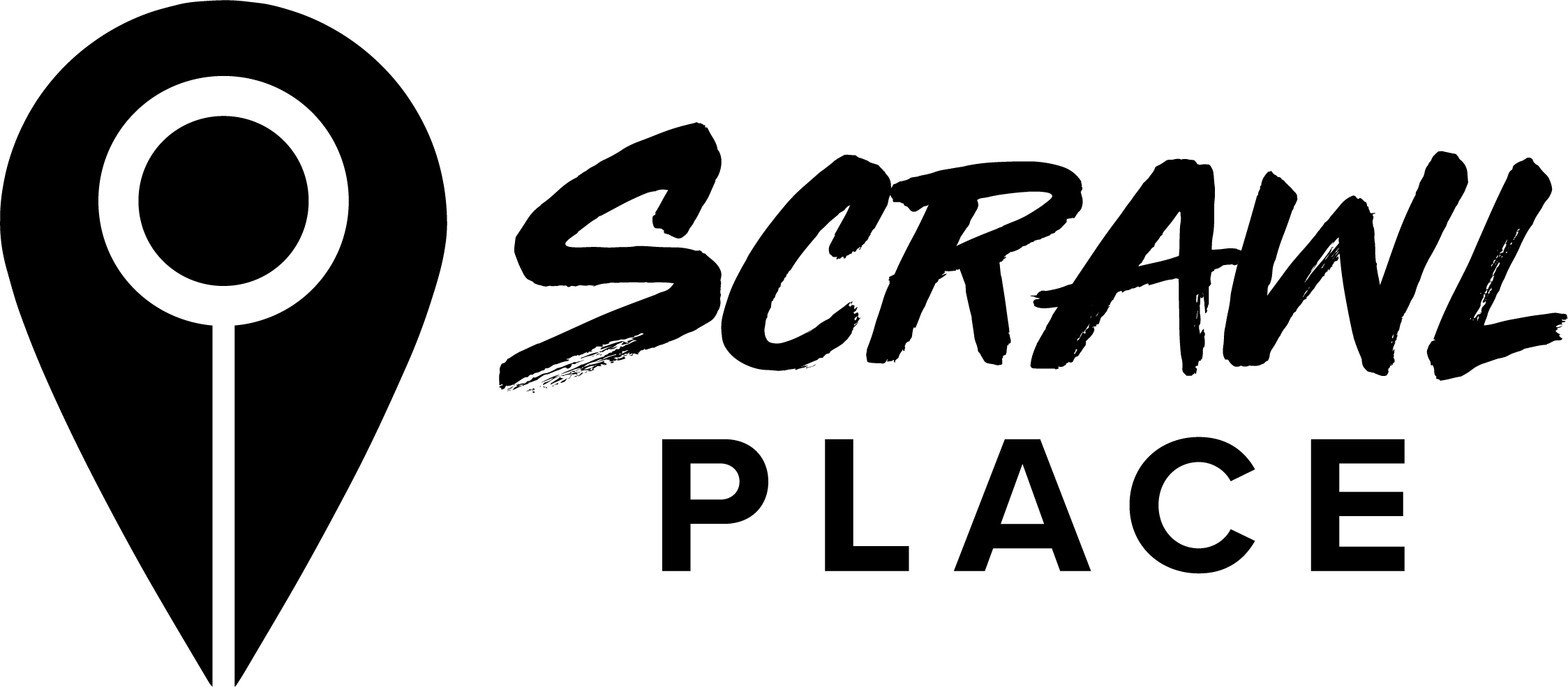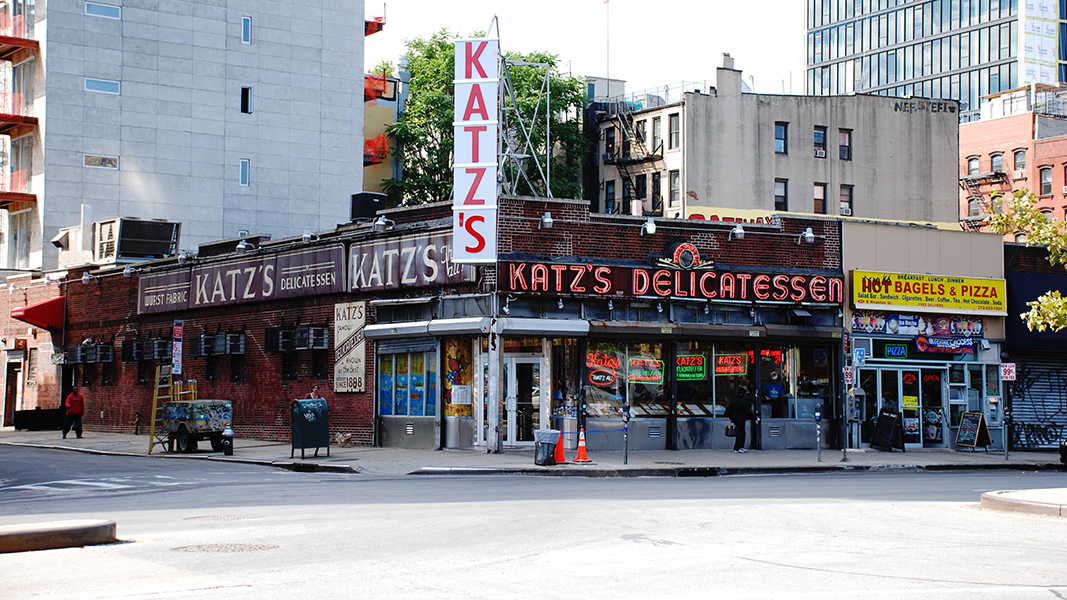Photo by Alexander Reitter / Shutterstock.com
This is a story of grease, and the bonds it forms.
We were three good Jewish boys, Flatbush yeshiva bochurim, and when we went about breaking the law of our forefathers, we did so thoroughly and with care and diligence. Kahn and I were living in Washington Heights in those days, attending Yeshiva University. Lipschutz was still in Flatbush, working at his dad’s locksmithing business. Of the three of us, he had the most to lose. His parents were strict, and while Kahn and I could expect to be a disappointment, Lipschutz might actually get kicked out if they found out he’d gone off the derekh. More than that, he’d be breaking their heart. He’d been a real talmid hakham, and everyone thought he’d go to kollel or Israel, or kollel in Israel. Truth was, when he’d befriended us in 11th grade, we thought he was doing kiruv, trying to get us to forsake the modern synagogues we’d grown up in and become chassidish like his family. Kahn gave him the cold shoulder until he showed us the Metallica shirt he was wearing under his button up and tsitsis. In the end, it was Lipschutz who got us to take out the books of philosophy from the Brooklyn Library for him, and by Sophomore year of YU, we were all pretty sure we were apikorsim.
We had all tried treyf on our own, but it was Kahn’s idea that we eat it in front of each other, to seal something, to cement our friendship, and our decision to leave. I first suggested McDonald’s or Burger King, and that we do it on Shabbos. A total capitulation to the American landscape. But Lipschutz was still living at home and couldn’t afford his own place yet, so we figured it would have to be some day he could get away unnoticed. Then McDonald’s seemed too common to Kahn, who was getting a refined palate in treyf, and too capitalistic for Lipschutz, whose politics were swinging left. Plans stalled out until late summer.
Kahn called me and asked if I’d checked my texts. I had been avoiding my parents begging me to go on a shidduch date, so I hadn’t. I checked. From a strange number, I read, “Lipschutz here. Meet me at Ludlow and Houston tomorrow at 6. We’ll seal the oath.”
“He must have borrowed the phone. You know his folks won’t let him have one,” Kahn said. “Anyway, I think it’s code for going through with the treyf plan. You in?”
“Yeah,” I said. “Meet at the A?”
“In civvies or uniform?” Kahn asked, meaning in our black pants and white shirts and yarmulkes, or incognito, hiding our Jewishness from the world.
“We’ll go down in uniform, get off at 42nd and change into civvies, shmiras maris eyin,” I said definitively. Kahn grunted approvingly and hung up.
Maris Eyin is a strange mitzvah, a mitzvah on your way out. If you’re going to shame the Torah, then keep to this Torah: Don’t look like a Jew while you do it. While I waited for Kahn to finish changing, I looked at myself in the Port Authority bathroom mirror. Clean shaven like most YU guys. In a Slayer t-shirt and ripped jean shorts, did I really look so much a Jew? Well, there was my mother’s nose, stalwart and sloped. My father’s sad eyes. As I looked for more Hebraisms in my reflection, I saw behind me a father emerge from a stall with his two year old. The two year old was crying, and the father was laughing nervously and trying to soothe him. “The flush scared you? That’s okay, it’s okay buddy!” He tried to pick up his son, but the two year old screamed and punched and kicked at his father, too upset to be handled easily. I thought of the story of God’s reception of the news that the Rabbis had overruled the voice of God, that God laughed and said “My children are sporting with me!” The father smiled at me apologetically as he shushed the child and swept him out of the bathroom. Then Kahn came out, and we got back on the A.
We reached west 4th and got off the train, walked down Bleecker to Lafayette, then turned at the Puck building onto Houston. Lipschutz met us in the neon orange glow of the display at Katz’s.
We shook hands in solemn greeting. Kahn asked where the treyf was. Lipschutz gestured up at the immense display of hanging salamis “to send your boy in the army” and said “You know, my great grandfather’s brother was the last Mashgiach at Katz’s.” “Bullshit,” said Kahn, just as I was asking, “Around when was this?” Lipschutz just smiled that strange sweet smile of his at Kahn, and answered my question. “About a hundred years ago. Quit because they wouldn’t close on Shabbos. Should we go in?”
We entered the generous warm cavern of the restaurant, and were instantly greeted by a bored woman in acrylic nails and box braids, who didn’t look much older than us. She asked if it was our first time here; we nodded and she nodded back. She handed us a yellow ticket. “Hold onto it, it’s how you pay, you can’t leave without turning it over.” I looked at the strange little slip of paper, and as we approached the counter to order our treyf pastrami, that had been slaughtered improperly, in the way of the gentiles. I thought about how good I was at following directions. I was taught that I, along with all Jews, had stood at Sinai and recited “naaseh v’nishmah” “We will do and listen.” An oath of eternal obedience to the will of God. Now my friends and I were going to eat non-kosher meat, look into each other’s eyes, and promise each other to leave the will of God behind us. I clung tighter to the ticket. Like the mitzvah of Maris Eyin, I couldn’t leave without it.
We went up to the meat cutting counter together, and ordered three pastrami sandwiches. Kahn ordered his with cheese. The bearded muscular guy cutting the meat carved a tiny chunk into three slices, handing it to us to taste. We hesitated, the length of a bracha, the amount of time it would take to sanctify the meal. Then we each took our greasy medallion of flesh, and put it in our mouths. We nodded at the cutter and at each other, a sort of conspiracy passing between us, and who knows, maybe to him. In a few minutes, our sandwiches were ready, and we sat down.
Kahn began eating almost instantly. Lipschutz and I studied our sandwiches. “It’s enormous,” I said. I felt I was on the edge of the rest of my life, and I wanted to look around before moving on. Lipschutz said, “Where is it written that a delicatessen has to serve sandwiches the size of a baby’s head?” “Katz’s perek yud, pasuk chaf,” mumbled Kahn around a mouthful.
I think often now, of that long table in Katz’s, boiled in yellow sodium lights. Three boys sit around it. They think they are heretics but they are boys. There is a faint pressure on all their heads where they know their yarmulkes should be. They seem unnaturally stiff in black heavy metal band t-shirts and jeans. Their heads are bowed towards each other, as if in prayer, but really the weight of their fatty sandwiches drags them forward, bends them. They are betraying a history, and so, in some sense, they are living that history more than their more obedient fellow Jews. They talk of this and that, concerts they have snuck off too, future plans. Something rests between them, but they know not what. If I had suggested to them that it was the wings of the shekhinah, then at least one would laugh at me. But so be it. Perhaps laughter is the sound that greets us, for His children are sporting with Him.
Mordecai Martin is an Ashkenazi Jewish writer working in a blur between Mexico City, Philadelphia and New York. His work has appeared in Catpault, Peach Magazine and Timber Journal. He is pursuing an MFA in Creative Writing at Randolph College. He tweets and instagrams @mordecaipmartin.

